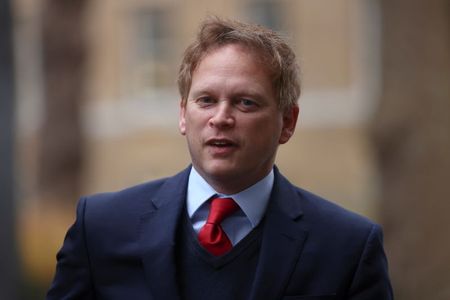Domestic air passengers set for more generous compensation scheme for delays

Neil Lancefield PA
More passengers will receive compensation for delayed domestic flights under plans announced by Transport Secretary Grant Shapps.
The Cabinet minister is proposing to make travellers entitled to payouts for flights within the UK which arrive at their destination more than one hour late.
The UK currently uses the European Union’s EU261 rule, which means passengers on flights shorter than 1,500km (932 miles) can claim £220 for delays of more than three hours, but nothing for shorter hold-ups.
As a result of having new powers due to Brexit, the Government is considering replacing this system with a model similar to the one used by rail and ferry operators, which links compensation amounts to the cost of travel.
Read more: Aviation chiefs call for ‘new normal’ now with testing ditched for fully-jabbed fliers
Under the Department for Transport’s (DfT) plan, which is under consultation, passengers would be entitled to:
– For a delay of more than one hour but less than two hours – 25% of the ticket price
– For a delay of more than two hours but less than three hours – 50% of the ticket price
– For a delay of more than three hours – 100% of the ticket price
The DfT did not specify which categories delays of exactly two and three hours would fall into.
Airlines avoid paying compensation for disruption caused by events outside their control, such as extreme weather, security alerts and restricted air traffic control operations.
Other proposals to protect passengers’ rights include making it mandatory for airlines operating in the UK to sign up to an alternative dispute resolution (ADR) scheme, which could help more people receive the refunds and compensation they are entitled to.
ADR programmes have helped thousands of passengers escalate complaints without going to court, but membership by carriers is voluntary.
The Government is also considering giving the Civil Aviation Authority (CAA) more power to enforce consumer laws through the ability to directly fine airlines for breaches.
Mr Shapps said: “People deserve a service that puts passengers first when things go wrong, so today I’ve launched proposals which aim to bolster airline consumer protections and rights.
“We’re making the most of our Brexit dividend with our new freedoms outside of the EU, and this review will help build a trustworthy, reputable sector.”
Tim Alderslade, chief executive of industry body Airlines UK, said carriers “work hard to ensure that the passenger experience is as smooth and enjoyable as possible”.
His organisation will respond to the consultation.
Read more: Brexit red tape: Risk of 17-mile queues at Dover due to new EU biometrics checks
CAA chief executive Richard Moriarty said the plans are a “clear indication of the need to enhance our enforcement powers, and bring us in line with other regulators”.
He added: “The proposals will improve passenger rights and equip the Civil Aviation Authority with the appropriate tools to act swiftly and effectively for the benefit of consumers.”
Rocio Concha, director of policy and advocacy at consumer group Which?, said trust in travel firms “plummeted” when the coronavirus pandemic began as some airlines “ignored their legal obligations and refused to pay refunds for cancelled flights”.
She went on: “This consultation is a welcome first step that must improve and strengthen consumer rights and protections so that complaints are dealt with fairly and promptly, and that passengers receive the money they are due quickly and without unnecessary hassle.
“It is also vital that the system is backed up by a regulator with the powers it needs to take swift and strong action against any company that breaks consumer law.”
Mr Shapps is also proposing to require airlines to pay the full cost of repairing or replacing wheelchairs and mobility scooters lost or damaged during domestic flights.
They are currently only obliged to pay passengers up to around £1,200 for damage to or loss of their belongings under the terms of the Montreal Convention, even though some wheelchairs cost more than £25,000.
Caroline Stickland, chief operating officer at disability group Transport for All, said preventing someone from using their wheelchair “can mean a total loss of independence”.
She went on: “Much more needs to be done to safeguard against this, including fair recourse to compensation for disabled passengers.
“We welcome these proposals and hope they mark the start of further positive changes in this area.”
